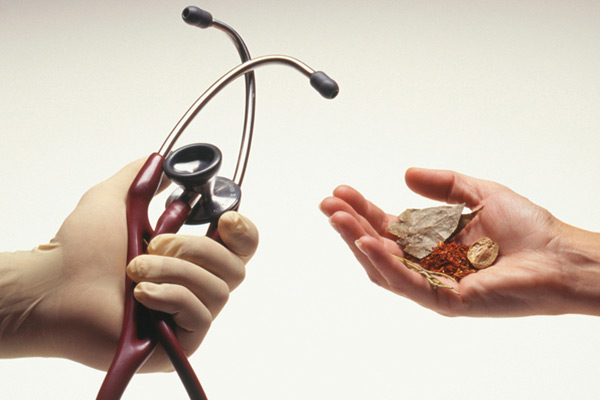I recently had the pleasure of attending the Mindd forum and was inspired by one of the keynote speakers, Dr Kelly Brogan, who, whilst not focusing on TCM had much to recommend in eating traditionally.
Dr Brogan is a holistic women’s health psychiatrist with a sharp intellect and wit, warm heart and wealth of knowledge. A true seamstress, eloquently weaving together the interplay between our modern-day health crisis with our flawed mainstream approaches to lifestyle, nutrition and medicine.
Traditional Diets and TCM
I respect Dr Brogan for these qualities and notably her passionate interest in the diets of traditional cultures and what this has to teach us about where we are going wrong with our current eating habits.
As a practitioner of Traditional Chinese Medicine (TCM), I want to provide some insights into how food, along with acupuncture and Chinese herbal medicine, are used to promote health. How these practices can be applied to our modern-day understanding of the human microbiome, which, we are learning is critical to our health and wellbeing.
Many Thousands of Years of Knowledge
The traditional Chinese approach to food represents the wisdom of thousands of years of human discovery, uncorrupted by industrialised food production and the subsequent changes to the human diet. I feel like the Chinese understanding of food as medicine, gives us a window to help navigate our way through the growing list of modern diets claiming to have all the answers.
As Dr Brogan noted, Chinese medicine has been screaming from the mountain tops for thousands of years about the profound relevance of the gut to overall health, including mental health. The recent, ongoing discoveries regarding the gut-brain axis are well described in Chinese medicine, albeit using very different concepts and language.
In Traditional Chinese Medicine, the right food is critical to good health. Not just because the western nutritional model has reduced food to vitamins and minerals, but also for the complex interactions and communication these foods have with the trillions of microbes and cells in our bodies. In Chinese medicine, this is referred to as the ‘energetics of food’. It represents the wisdom of listening and understanding the interplay between the microbiome, gut, brain and immune system.
A Key Connection Between the Spleen and Digestion
The concept of the ‘Spleen’ in Chinese medicine refers to some critical aspects of the digestion process, so I suspect many of the foods known in TCM to be beneficial for the Spleen, have essential interactions with our gut bacteria. Rice and sweet potato, for example, are understood in modern times to be crucial prebiotics. In TCM, both these foods are said to be ‘sweet’ and ‘neutral or warm’ thereby helping to strengthen the Spleen which likes to be ‘warm and dry’ and is nourished by a balanced amount of ‘sweetness’. Many other vegetables like carrot, pumpkin, turnips and beetroot also serve this purpose. It’s likely they too have specific actions on gut microbes, and this is one of the many reasons Chinese medicine encourages their consumption for digestive health.
TCM and the Microbiome
Chinese herbal medicine and acupuncture are well known for their potentially beneficial effects on our state of health. While many studies are exploring the interactions between acupuncture and our bodily systems, far fewer have been undertaken to investigate the possible interactions between therapies like acupuncture and herbal medicine and our microbiome.
Studies Confirm Benefits of TCM on the Microbiota
There is an exciting study on Reishi mushroom which has been used in Chinese medicine for centuries and is now famous for its health-promoting properties. The study showed that Reishi might reduce obesity and alleviate inflammation by modulating the composition of the gut microbiota and maintaining intestinal barrier integrity[1].
Another study showed that the Chinese herbal formulas Si Jun Zi Tang (a well known digestive tonic) and Shi Quan Da Bu Tang (a tonic with digestive and immune indications) have been shown to regulate gut bacteria[2] beneficially. This investigation revealed that as a result, there were changes in gene expression, i.e. turning genes on and off.
Likewise, acupuncture has also been shown to help regulate our internal bugs. A study on the effects of acupuncture on gut bacteria showed that beneficial bugs Lactobacillus and Bifidobacterium increased after treatment, but potentially harmful bacteria, including Bacteroides and Clostridium perfringens, decreased[3].
More good-quality studies are required in this area; however, these demonstrate that the health benefits associated with traditional Chinese approaches to food and medicine are likely to include positive effects on the microbiome. The foods we eat and the medicine we use can and does have an impact, for better or for worse, on the ecology of our body.
TCM and the Best Food for You
I would encourage all people, especially those with chronic or unresponsive health complaints, to learn more about traditional food practices and consider this knowledge when making decisions about how, what and when to eat. Getting tailored information specific to your constitution from a practitioner experienced in traditional Chinese nutritional medicine can be an excellent place to start.
I wish you all the very best of health on your journey.
Written by Sean Alson B. Health Sc, B.App Sc.
Certified in Traditional Chinese Medicine
[1] Chang, C.-J., et al. (2015). Ganoderma lucidum reduces obesity in mice by modulating the composition of the gut microbiota. Nat Commun 6, no. 749. http://www.nature.com/ncomms/2015/150623/ncomms8489/full/ncomms8489.html
2 Li, H. K., Zhou, M. M., Zhao, A. H. & Jia, W. (2009). Traditional Chinese Medicine: Balancing the Gut Ecosystem. Phytotherapy Research, Vol. 23, pp. 1332-1335. http://www.ncbi.nlm.nih.gov/pubmed/19253310
3 Xu, Z. T., Li, R. F.., Zhu, C. L. & Li, M. Y. (2013). Effect of acupuncture treatment for weight loss on gut flora in patients with simple obesity. Acupuncture in Medicine, Vol. 31, No. 1, pp. 116-117. http://www.ncbi.nlm.nih.gov/pmc/articles/PMC3796330/





